If you explore the websites of the most popular podcasts in the world, you’ll notice many of them are part of podcast networks. But what does this mean? Are podcast networks necessary? Should you join one right away?
If you’re thinking about joining a network, it’s important to understand how they work, what benefits they offer, and what drawbacks you’ll have to endure. In this article, we’ll explore everything you need to know about podcast networks.
What is a Podcast Network?
PodcastOne (which is a podcast network) has a great definition:
“A podcast network is a collection of podcasts that are produced, distributed or made available to advertisers through a single company, or network.”
In other words, it’s an umbrella company that individual shows join to take advantage of certain benefits, especially when it comes to advertising. Some podcast networks stick to themes (like true crime shows or interview shows) while others are more open.
What do podcast networks do? They were created originally to market and monetize podcasts, but they’ve evolved to much more over time.
You see, podcasts had a discoverability problem in the late 90s and early 2000s. They weren’t mainstream at the time. Podcast directories didn’t exist yet and search engines weren’t capable of exploring audio content.
Podcast networks were built to solve this problem. Their goals are to market shows to increase listenerships and create a big pool for advertisers to buy ads. Most networks want to profit as well, so they take a portion of the ad revenue. This creates a symbiotic relationship between the podcaster and the network where both sides can succeed.
Need help getting your podcast off the ground?
With Castos’ Podcast Launch Service, our team of professional audio engineers, show note writers, and marketing pros work with you to create marketing assets, map out episodes, and make sure your podcast is set up for success.
Enter your information to request a free consultation.
Benefits of Joining a Podcast Network
Here are some of the benefits podcast networks provide. Keep in mind, however, that all networks operate differently. While these benefits are typical, they may not be part of your network deal.
Production help
Podcast networks want you to produce the best show possible, so they’re often happy to offer production assistance. This help might be as simple as advice from experienced podcasters, or as robust as editing services, researching services, marketing assets, or coaching.
Increased marketing and exposure
The network has marketing tools and services to help you gain exposure and attract more listeners.. They also set up cross-promotions between members of the network so you can share listeners between audiences. This is an attractive benefit to podcasts that don’t have the time or know-how to market their own show.
Increased listenership
More marketing means more listeners. Most importantly, these listeners stick with your show even if you decide to leave the podcast network one day.
More ad revenue
For one, you can start earning some ad revenue with a podcast network earlier than you could on your own because the network “pools” download numbers together to lock in sponsorships. You may not earn much, every little bit helps you produce a better show.
For another, with more listeners comes more ad revenue. As your listenership grows, so will your income, which allows you to reinvest into the show faster, thus grow even faster.
Networking and connections
Podcast networks are exclusive clubs for podcasters, which makes them the perfect places to meet experienced and successful people in the industry. These connections can last even if you decide to leave the network one day.
Less work finding sponsors
The network does all the legwork to find sponsors. You just read the ad copy you’re given or slice in the ad audio files they send to you. This lets you put all of your energy into producing and marketing your show.
Credibility by association
By associating yourself with other quality shows, you gain credibility and authority. People assume your show has value because you are part of a well-liked, trusted brand. A listener might say, “I like other shows on that network, so I’ll try this one.”
VC funding
Some podcast networks have access to venture capital money. VCs don’t want to invest in individual shows because that’s a lot of work that eats into their profits, but they’re often willing to invest in networks that let them invest at scale.
Podcast networks often use this kind of funding to offer support to their members, sometimes in the form of dedicated producers, editing services, paid search or social media ads, etc.
Partnerships in other industries
Some podcast networks build partnerships with complimentary industries. For instance, a network may have a deal with a book publisher to help podcast hosts become authors. Or a podcast network might have a deal with a network of websites to display banner ads. The options are endless here.
Pitfalls of Joining Podcast Networks
The benefits of joining a podcast network are clear, but there are also some drawbacks as well. These aren’t deal breakers necessarily, but they’re worth considering.
You’ll need to sign a contract
When you join a podcast network, they’ll ask you to sign a contract. This document is designed to protect you and the network, but it will lock you in for a period of time.
For instance, a contract may require you to publish an episode every week for a year. That’s a big obligation, even if you planned to publish every week anyway. It means if you want a vacation, you’ll have to produce something extra ahead of time so you don’t violate the contract.
Some networks require you to switch to the podcast hosting service the network currently works with. You may have to produce reports on a regular basis for the network or participate in certain network activities and events. While these kinds of obligations can be healthy, just keep in mind that you can’t escape them until the contract ends.
You might lose some creative control
Some podcast networks ask for some creative control over your show. For instance, they might forbid you from criticising other shows on the network. Or they might give you a list of topics you can’t mention in an episode. Plus, you won’t get to decide which sponsors you advertise for. You may have to run ads for a sponsor you don’t like or agree with.
These requirements should be outlined in the contract, so you’ll know them before you commit to the podcast network. Make sure you read that contract carefully.
The podcast network takes a cut
Naturally, podcast networks are businesses that want to generate profit, which is why they take a portion of the ad revenue you generate. As your show grows in size, this portion can become substantial. Some shows leave their podcast networks once they grow large enough to demand premium advertising dollars on their own.
Furthermore, your network fees won’t be the same as other podcasts in the same network. As a new podcast, you may pay a larger fee than other members until the network comes to trust your ability to fulfill your end of the contract.
How Do Podcast Networks Work?
Once you join a podcast network, you gain access to the network’s marketing and advertising machine. They’ll cross-promote you across all of their other podcasts and help you out with all of your digital marketing activities. Some networks have in-house teams of copywriters, designers, automation specialists, etc.
Most importantly, the podcast network uses their advertising connections to include ads in your show. In most networks, the podcaster gets 70% of the ad revenue. The network takes 30%.
Podcast networks usually use the CPM model of podcast advertising, which pays a flat rate per 1,000 impressions. Ads are typically placed at three different points within the episode.
- Pre-roll ads (before the episode) usually last 20-30 seconds.
- Mid-roll ads (in the middle of the episode) usually last 60 seconds.
- Post-roll ads (at the end of the episode) usually last 10-20 seconds.
Mid-roll ads pay the most because the user can’t easily skip over them. Pre-roll and post-roll ads pay about the same.
Let’s say you get 4,000 downloads and charge $7 for a pre-roll ad, $13 for a mid-roll, and $5 for a post-roll ad. $25 for ads times 4,000 downloads comes out to $100 for the episode. The podcast network takes 30%, so you walk away with $70.
Is that 30% fee worth it? That depends on the exact wording of the agreement you sign with the network. Make sure you understand the entire deal before signing anything.
It also depends on whether you think you can get advertisers on your own. If you’re willing to put in the work to find sponsors, there’s no reason to pay the network’s fee. But if you don’t want to go through the hassle or if you think your show isn’t big enough to find sponsors without a network’s help, 30% may be a fair price.
Ad-free podcast networks
Not all podcast networks are based around ads, however. Some don’t get into advertising at all. They’re just networking groups for shows to cross-promote and help each other grow. The Health Podcast Network, for example, doesn’t force members to do anything.

These kinds of networks simply connect your RSS feed to their website. No ads are inserted, your artwork is displayed, and all download stats are included in whatever hosting environment you use. You’ll have to fill out an application, but once approved, there aren’t any hoops to jump through.
What is Required to Join Podcast Networks?
Podcast networks want big shows with lots of influence. Popular shows will bring in the most ad revenue, naturally, which is good for the network.
Most podcast networks require you to publish at least one episode published per week and to get at least 1,000 downloads per week (or 5,000/month). They also require you to participate in mandatory cross promotions with other shows in the network.
That said, the most popular podcast networks set the bar much higher. Some require 50,000 downloads per episode before they’ll even negotiate with you. Requirements can vary, so you’ll need to reach out to a network you like to find out more.
Does this mean smaller shows can’t join networks? No, not at all, but they’ll have a harder time striking good deal with one until their popularity grows. In fact, there are some popular podcast networks that prefer small, up-and-coming shows.
Top Podcast Networks
To give you a better idea of how podcast networks work, let’s introduce you to the big ones. These are the most popular podcast networks. They only accept shows that receive about 50,000 downloads per episode.
1. Gimlet Media
Gimlet (a division of Spotify) was founded by This American Life producer Alex Blumberg. It focuses on digital audio journalism and entertainment.
2. Wondery
Wondery is an American podcast network backed by 20th Century Fox. It was launched in 2016 by Hernan Lopez and now showcases more than 70 shows across multiple topics, such as crime, business, and entertainment.
3. Earwolf
Earwolf is a Los Angeles podcast network founded by Scott Aukerman and Jeff Ullrich. The network originally focused on comedy podcasts (such as Comedy Bang Bang), but has since diversified into a variety of topics.
4. Radiotopia
In 2014, Public Radio Exchange launched this podcast network with NPR producer Roman Mars. They claim to be “a network of the most innovative, listener-supported, artist-owned podcasts in the world.”
5. PodcastOne
PodcastOne is an advertiser-supported podcast network. It was founded by Norm Pattiz who is also the founder of radio-giant Westwood One. PodcastOne has more than 200 podcasts from comedy and entertainment to news and politics.
6. Midroll
Midroll Media is a digital media company that provides a complete suite of production, distribution, and monetization services to artists, entertainers and thought leaders. They have more than 300 shows on their network.“Midroll was born from the recognition that great hosts thrive when they can focus on their shows, and advertisers benefit when they can work with a professional sales team,” they say.
7. National Public Radio (NPR)
NPR is a privately and publicly funded non-profit membership media organization that syndicates over 900 radio stations. They got into podcasting in 2005. Today, their podcasts get nearly 70 million downloads per month.
8. WNYC
WNYC Studios is the premier producer of on-demand and broadcast audio. It’s home to some of the most critically acclaimed and popular podcasts, such as Radiolab, On The Media, Nancy, The New Yorker Radio Hour, Death, Sex & Money, Snap Judgment, Here’s the Thing with Alec Baldwin, and 2 Dope Queens.
9. TWiT
TWiT is a podcast network founded by tech broadcaster Leo Laporte. The network began with the launch of This Week in Tech (the #1 technology podcast), but now hosts over podcasts and live streaming shows. Their shows provide news, commentary, help, how-to, and perspective on digital tech.
Should You Join a Podcast Network?
The question you have to ask yourself is this: Will joining a podcast network be beneficial to your show, or can you achieve more on your own?
It’s important to understand that a network won’t guarantee success for your show. There’s no doubt they can help, but it’s still up to you to create great content that attracts and retains listeners. You’ll have to continue promoting your show on your own, as well.
Before you start approaching podcast networks, work to make your show seem as valuable as possible. Boost your listenership as high as you can. Monetize your show with ads to show potential networks that someone is willing to spend their ad dollars with you. This will give you more leverage when you negotiate a deal with the network.
Keep in mind that if you join a network, you aren’t locked in forever. If you aren’t happy with your network, you can always leave at the end of your contract.
At this point, you should know everything there is to know about podcast networks. They can be a valuable tool to grow your show and earn ad revenue, but they come with costs. It’s up to you to decide if joining one is right for your show.

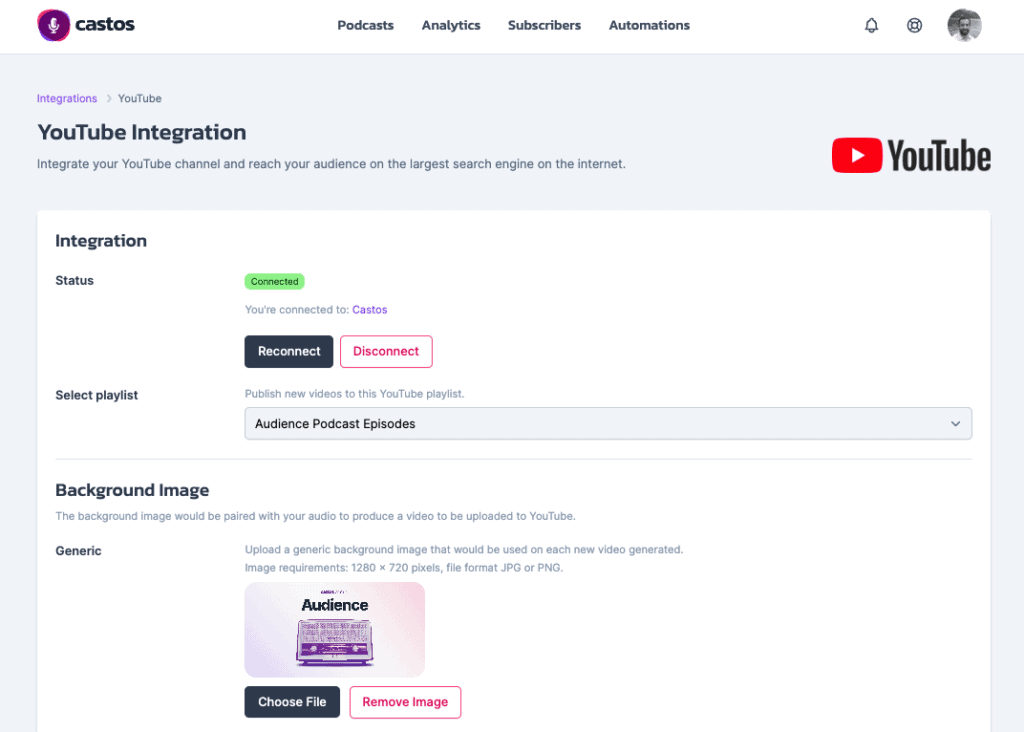

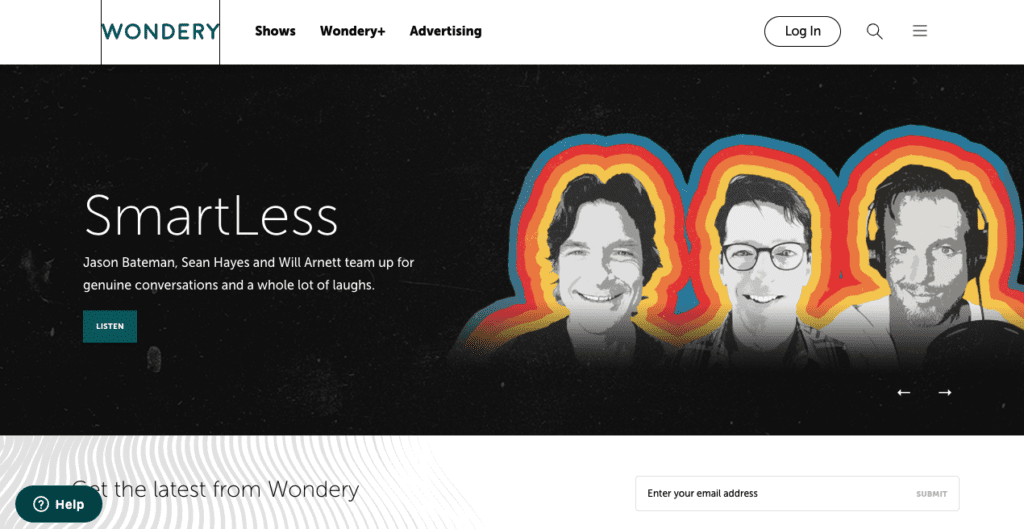
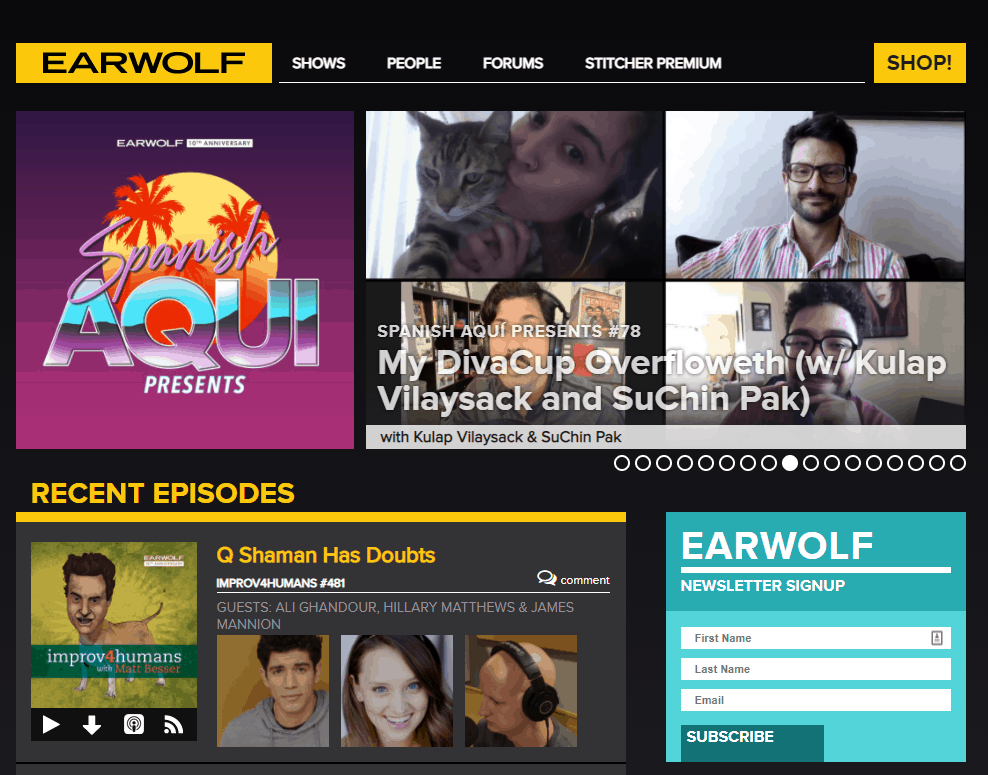
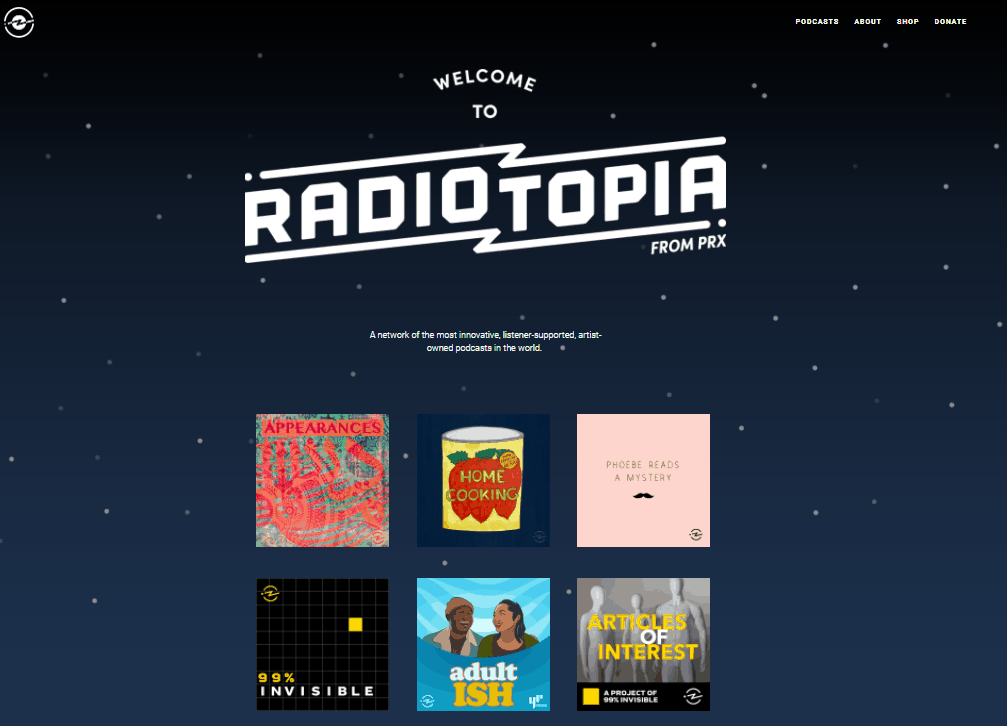


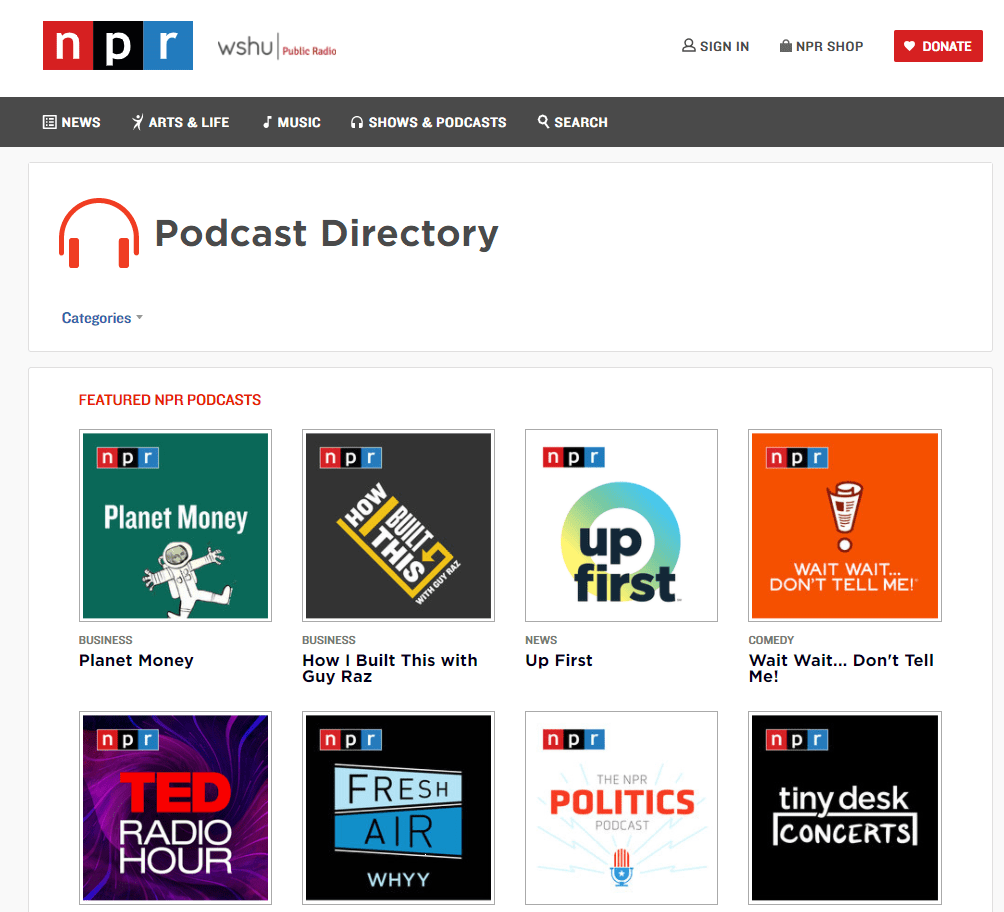


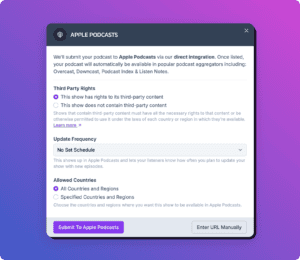
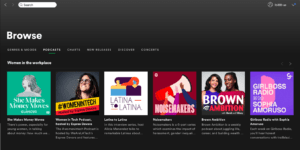

Hi everyone ‼️ I came across this page while I was doing research about starting a podcast and how to monetize it also I was simultaneously researching charlamagne tha god’s podcast network So here’s my deal! I’ve created a show “Logic By Definition The Podcast “ but I’ve been doing a hip hop based YouTube channel called KvscTV for about 10 years on and off based out of Hartsville , South Carolina where I’m from and I must say I’ve found this article very informative to say the least! Thanks for all you do guys and for looking out for the little guys on the way up like me much love Peace
This information was so helpful for me as I begin my research to determine which podcast network I want to work for. I have been freelancing as a producer for a few shows here and there for four years now, and I would like to transition that work to a full-time position so thanks you for the information and the list.
So many people think, “I’ll start a podcast and get on a network.” One thing to keep in mind, Erik Nuzeum mentions this in his book Make Noise, podcast networks don’t make small shows big. They make big shows bigger. Find other similar podcasts and cross-promote. I did this with two other shows for years. We all benefitted.
Really helpful, thank you